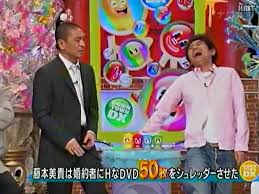Why yes, I’m still learning those two languages. My Japanese is leaps and bounds ahead of my Cantonese of course, so much so that sometimes I don’t even notice that I’m reading or listening to something in Japanese because it feels so natural. But I still have a long way to go with spoken Japanese, mostly because I don’t have the chance to speak it often. That’s why I think it’s necessary to listen to Japanese radio and TV as much as possible.
While it’s true you can learn a lot of spoken Japanese from anime, the fact remains that real Japanese people don’t talk as clearly and in turn and in such orderly, sensible sentences. You want real Japanese, you have to listen to regular humans speaking it to other regular Japanese people. Which is where Japanese radio comes in.
In the past I spent a lot of time trying to find various radio stations and switching back and forth all the time (chronicled in earlier articles in this blog), but nowadays I’m busy, to start with, plus there’s much to be gained by sticking to one station (easier to remember the schedule, easier to find favorite programs and announcers, etc), so I have one go-to radio station for Japanese, and one for Cantonese.
 FM Castle (Japanese) – You’ll also find it called FM Tanba in places on the internet. It’s a local radio station from Fukuchiyama in Kyoto. You can listen to the broadcast on their website or do like I do and download the asx and add it to your Windows Media Player playlist. You can also listen to them at TuneIn.
FM Castle (Japanese) – You’ll also find it called FM Tanba in places on the internet. It’s a local radio station from Fukuchiyama in Kyoto. You can listen to the broadcast on their website or do like I do and download the asx and add it to your Windows Media Player playlist. You can also listen to them at TuneIn.
What I like about FM Castle is that during the night (Japan time) they play a lot of older Japanese music from the 60s, 70s and 80s, which I really enjoy listening to much more than modern J-Pop. The female singers in the 60s and 70s could really sing as well, beautiful clear voices all around. I keep adding new songs to my mp3 list all the time. Some of the songs are a bit, uhhh, racy though, like the old “Don’t make me take my sailor uniform off” (セーラ服を脱がさないで) songs and stuff, so once in a while I have to mute the station until they sing sometime sensible. During the day they have a lot of talk shows and interviews so you can get your regular listening practice in as well.
 RTHK Radio 2 (Cantonese) – Their website stream is working again. RTHK has a lot of radio stations, which is why I have to specify Radio 2. Radio 1 is very boring, all about politics and news and more politics. Unless you’re into that sort of thing. Radio 3 is English, I believe, and then some of the other channels broadcast Mandarin only. Radio 2 is the best because it’s mostly Cantonese, and they have a very good mix of music and talk programs. I prefer the music programs like Ngo Ngoi Guangdong Go 我愛廣東歌 (I love Cantonese music) on Sundays and San gwong dai yat sin 晨光第一線 and Hing Tam Chin Cheung Bat ye Tin 輕談淺唱不夜天 at night. Very lively conversations during the day.
RTHK Radio 2 (Cantonese) – Their website stream is working again. RTHK has a lot of radio stations, which is why I have to specify Radio 2. Radio 1 is very boring, all about politics and news and more politics. Unless you’re into that sort of thing. Radio 3 is English, I believe, and then some of the other channels broadcast Mandarin only. Radio 2 is the best because it’s mostly Cantonese, and they have a very good mix of music and talk programs. I prefer the music programs like Ngo Ngoi Guangdong Go 我愛廣東歌 (I love Cantonese music) on Sundays and San gwong dai yat sin 晨光第一線 and Hing Tam Chin Cheung Bat ye Tin 輕談淺唱不夜天 at night. Very lively conversations during the day.
Guang Dong TV (Cantonese) – I don’t watch this too often, because somehow I always tend to tune in when they’re giving the news. The newscaster usually speaks in Cantonese with a Mandarin accent and a lot of Mandarin words (has to be heard to be believed) but when they interview people, those people almost always speak Mandarin so I really can’t follow along much.
Once in a while I’m lucky to watch when there’s a drama on, which is usually interesting, but then I forget to tune in the next day and then it’s back to square one. What I need to do is find the TV schedule and pick a few programs to follow. Must put that on my To Do list.
 Downtown DX & Honma Deka? (Japanese) – The Japanese TV shows I used to watch to get my listening practice in. I usually just get my episodes from Youtube and don’t really care too much whether they’re in broadcast order or not. Recently I’ve stopped watching them, though. I dunno, they just seem so trivial and superficial to me. What this “talent” is wearing, what that talent ate, and the tips and ‘research’ presented on Honma Deka is always spurious and poorly-researched at best, often selected for shock factor rather than usefulness. So I’m actually on the hunt for interesting Japanese programs is anyone has any to recommend.
Downtown DX & Honma Deka? (Japanese) – The Japanese TV shows I used to watch to get my listening practice in. I usually just get my episodes from Youtube and don’t really care too much whether they’re in broadcast order or not. Recently I’ve stopped watching them, though. I dunno, they just seem so trivial and superficial to me. What this “talent” is wearing, what that talent ate, and the tips and ‘research’ presented on Honma Deka is always spurious and poorly-researched at best, often selected for shock factor rather than usefulness. So I’m actually on the hunt for interesting Japanese programs is anyone has any to recommend.
So that’s the learning situation right now. I can say for sure I learn a lot from listening to Japanese radio, probably because I understand about 95% of what they’re saying already. With Cantonese I just enjoy hearing it spoken, but it would help if I backed up my listening with further studies. I’m working on a new Anki deck featuring actual spoken Cantonese instead of textbook examples, I’ll talk about it one of these days. Until then, that’s the progress I’m making!

